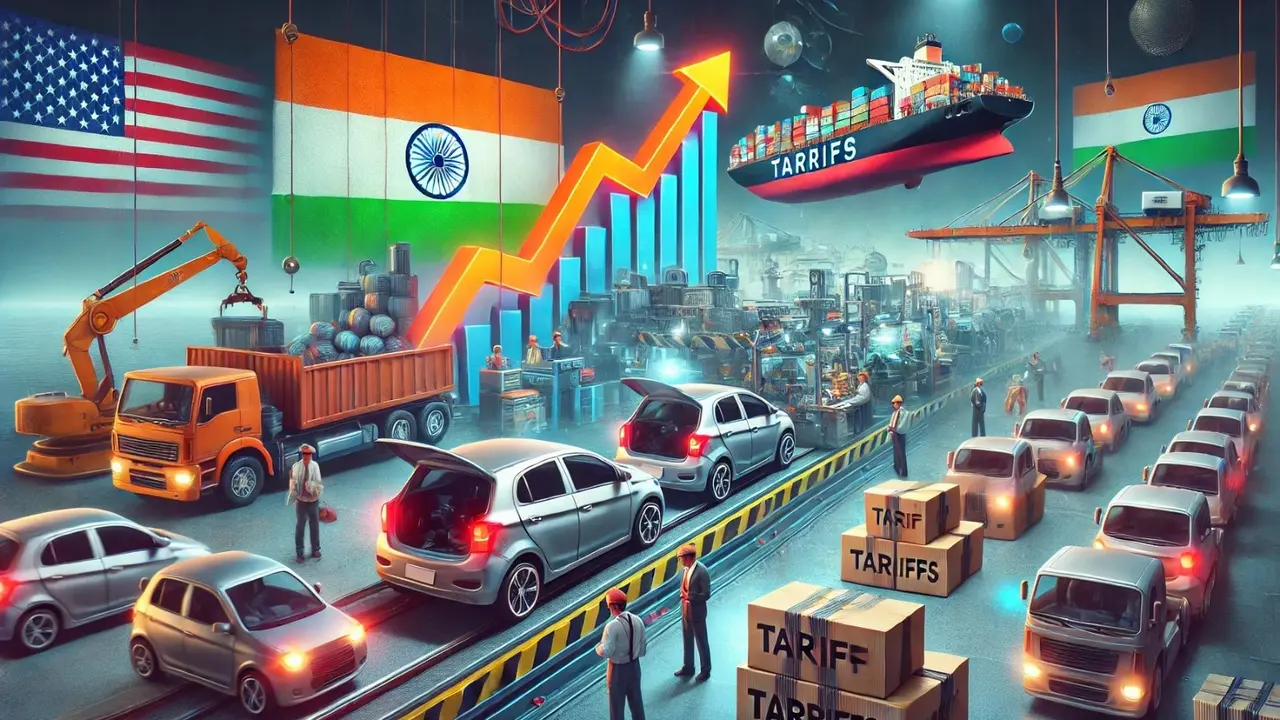Updated 27 March 2025 at 16:47 IST
No Speed Bumps! Indian Auto Industry Unfazed by 25% Import Tax
On Wednesday, Trump announced a 25% tariff on automobile imports starting in April.
- Republic Business
- 4 min read

The imposition of a 25% import duty by the US administration on fully built imported vehicles is expected to have no significant impact on the Indian market, according to a leading auto industry insider.
The Trump administration's decision to increase import duties on vehicles aims to promote local production and reduce dependency on foreign-built cars in the United States. However, leading industry players and analysts believe the move will not disrupt market dynamics.
Limited Impact on Indian Car Exports
“India does not export many vehicles to the USA, so an increase in tariffs is unlikely to affect Indian car manufacturers,” stated Puneet Gupta, Director, S&P Global Mobility.
On Wednesday, Trump announced a 25% tariff on automobile imports starting in April. Additionally, a second round of 25% tariffs will be imposed by May on key automotive components, including engines, engine parts, transmissions, powertrain components, and electrical systems.
Advertisement
According to Windmill Capital, India exported approximately 6.7 lakh vehicles in 2024, with exports now accounting for 15–16% of total domestic automotive sales. While earlier shipments were largely directed to Africa, Latin America, and South Asia, Indian-made vehicles are now reaching developed markets like Japan, highlighting their rising global competitiveness.
“When it comes to the United States specifically, the export exposure remains relatively limited. According to the United Nations COMTRADE database, India exported motor cars and vehicles worth just $37.11 million to the US in 2023. Given this small share, the direct impact of US tariff hikes on Indian automakers is expected to be minimal,” stated Naveen KR, Smallcase Manager and Senior Director, Windmill Capital.
Advertisement
Furthermore, India's growing trade partnerships—including recent FTAs with Australia, the UAE, and the European Free Trade Association (EFTA)—are opening up new markets and are expected to further bolster the country's automotive export momentum, according to Windmill Capital.
“The new US tariffs could particularly affect foreign luxury carmakers like Tata Motors-owned Jaguar Land Rover (JLR),” added Naveen KR.
Auto Component Players May Feel the Heat
While vehicle manufacturers may see negligible impact, Indian auto component manufacturers are expected to face greater challenges from US President Donald Trump’s latest tariff measures, according to industry analysts.
Windmill Capital noted that the 25% US import duty could make Indian auto ancillary exports less price-competitive, particularly for Tier-1 and Tier-2 suppliers that rely heavily on the US for revenues.
“Nevertheless, India’s relatively low import duty structure—ranging between 5% and 15% for auto components—allows for greater price flexibility and resilience in a retaliatory tariff scenario. Indian suppliers could still remain cost-effective compared to countries like Mexico or China, where cost structures are often higher or less predictable due to geopolitical factors,” added Naveen.
India specializes in traditional components such as casting, forging, and injection molding, where it remains a top sourcing destination. “Since the tariffs apply to all countries, the Indian component industry may be more affected by a slowdown in sales and the resulting uncertainty, which could limit further investment in the business,” said Gupta.
Industry data indicates that India’s auto component exports to the US stood at $6.79 billion in the 2023-24 financial year, whereas imports from the US were valued at $1.4 billion, attracting a 15% duty. Key export items include drive transmission & steering, engine components, body & chassis, and suspension & braking systems. During the last fiscal year, North America and Europe saw notable growth in exports, with North America accounting for a 4.5% increase and Europe a 12% increase. The key export destinations included North America (32%), Europe (33%), and Asia (24%).
Prior to Trump’s latest announcement, the US imposed nearly zero duty on imported components from India.
Leading industry bodies, including the Automotive Component Manufacturers Association of India (ACMA) and the Society of Indian Automobile Manufacturers (SIAM), have yet to comment on the development.
Published By : Avishek Banerjee
Published On: 27 March 2025 at 16:47 IST
